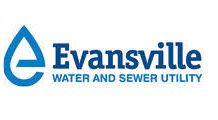The Evansville Police Department was awarded national accreditation on November 19, 2021, by the Commission on Accreditation for Law Enforcement Agencies, Inc. (CALEA). The agency was first accredited in 1994.Â
Following a multi-year self-assessment phase and a meticulous site-based assessment of community engagement, policy, procedures, equipment, and facilities by CALEA assessors, Chief Billy Bolin and Accreditation Manager Captain Scott Doan attended the CALEA 2021 Fall Conference. Each agency being reviewed goes before CALEA’s 21-member Board of Commissioners where the commission reviews all findings and determines the agencies’ accreditation status.Â
Due to the COVID-19 pandemic, the usual CALEA Conference, where agencies are formally reviewed and awarded in person, was taken online to a virtual format. On Friday, November 19, 2021, the CALEA Commission voted to approve the reaccreditation of the Evansville Police Department. CALEA President Anthony Purcell and Executive Director W. Craig Hartley, Jr. will formally award the Evansville Police Department with accreditation, signifying excellence in public safety and commitment to the community. This is the Evansville Police Department’s 9th award of national accreditation.Â
In 1979, the Commission was created through the combined efforts of four major law enforcement organizations; the International Association of Chiefs of Police, the National Organization of Black Law Enforcement Executives, the National Sheriffs’ Association, and the Police Executive Research Forum.Â
The purpose of the Commission is to develop standards based on international best practices in public safety and to establish and administer the accreditation process. The accreditation process is how a public safety agency voluntarily demonstrates how it meets professionally recognized criteria for excellence in management and service delivery.Â
“This award of accreditation does not come easy,†said CALEA President Anthony Purcell, Chief of Police, the University of Alabama at Birmingham Police Department. “Agencies must go through a rigorous review and evaluation of their organization and then implement the necessary policy and procedure changes. The process does not stop at that point. By voluntarily choosing to seek CALEA accreditation, the agency commits to an ongoing review of adherence to CALEA’s standards. Each community with CALEA accredited agencies should feel confident that their public safety organization is going above and beyond and operating under  the highest standards in public safety.â€Â
About CALEAÂ
The Commission on Accreditation for Law Enforcement Agencies, Inc., (CALEA®) was created in 1979 as a credentialing authority through the joint efforts of law enforcement’s major executive associations: International Association of Chiefs of Police (IACP); National Organization of Black Law Enforcement Executives (NOBLE); National Sheriffs’ Association (NSA); and theÂ
Police Executive Research Forum (PERF).Â
The purpose of CALEA’s Accreditation Programs is to improve the delivery of public safety services, primarily by: maintaining a body of standards, developed by public safety practitioners, covering a wide range of up-to-date public safety initiatives; establishing and administering an accreditation process; and recognizing professional excellence.Â
Specifically, CALEA’s goals are to: Strengthen crime prevention and control capabilities; Formalize essential management procedures; Establish fair and nondiscriminatory personnel practices; Improve service delivery; Solidify interagency cooperation and coordination; and Increase community and staff confidence in the agency.Â
The CALEA Accreditation Process is a proven modern management model; once implemented, it presents the Chief Executive Officer (CEO), on a continuing basis, with a blueprint that promotes the efficient use of resources and improves service delivery—regardless of the size, geographic location, or functional responsibilities of the agency.Â
This accreditation program provides public safety agencies an opportunity to voluntarily demonstrate that they meet an established set of professional standards based on industry best practices and approved by an all-volunteer board of commissionersÂ




